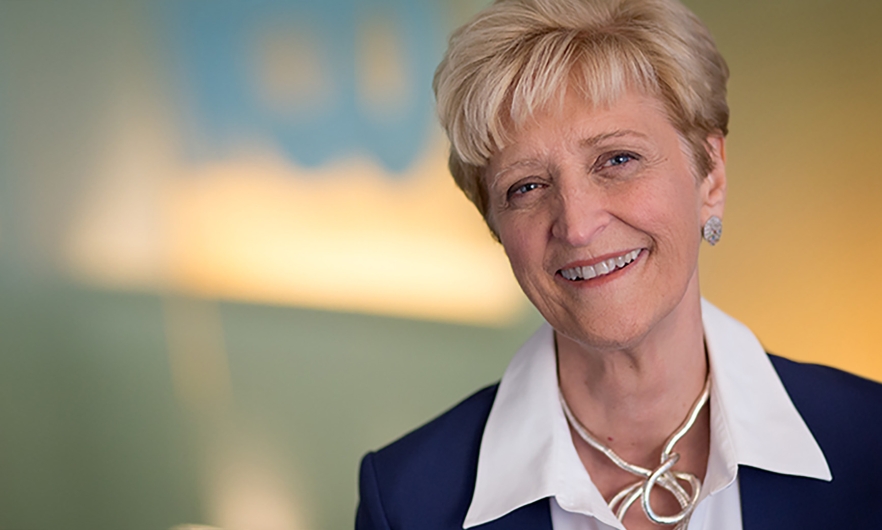Fall Dean’s Letter October 2019

Dear Friends,
The coming years for the Bloomberg School will be anything but business as usual.
While our research and education efforts are matchless today, we have a responsibility to design programs that will define public health for tomorrow. And that future will be interdisciplinary. Solutions to complex public health problems will require teams of experts from diverse fields. With this vision and the help of the strategic plan we launched one year ago, we are rethinking our traditional approaches and preparing for the future.
We have never been more ready to take on this challenge. Unique in its breadth and depth, the School already has an interdisciplinary culture that connects departments and disciplines and stimulates innovative, bold approaches to tough problems. Our continued success ultimately depends upon our ability to leverage this culture and promote team science, collaborative learning, and deep partnerships with the local and global end-users of our research. More than ever before, solutions to big public health challenges require the cross-pollination of ideas. We need both intentional and spontaneous interactions between people from different disciplines within and outside the traditional boundaries of public health. We need to foster an environment that is conducive to innovative thinking and serendipitous discovery. Imagine “collaboratories” where people sit with others interested in the same big problem, not just with people in the same discipline. Imagine biostatisticians, lab scientists, epidemiologists, and policy experts sharing a common space and a common mission. Autism, malaria, the health effects of climate change—big challenges like these demand clusters of experts with different backgrounds and approaches.
More than ever before, solutions to big public health challenges require the cross-pollination of ideas across disciplines.
One of our major new initiatives, SCIBAR (Support for Creative Integrated Basic and Applied Research) is all about nurturing this kind of environment. SCIBAR will help us support collaborative projects that incorporate both basic and applied sciences to make real advances in public health. These collaborations will emphasize use-inspired research that embraces the twin wins of attaining new knowledge and solving critical problems. We are committed to taking these public health solutions to scale and reaching populations most in need. I encourage you to visit our website to learn more about the SCIBAR initiative. While you’re there, listen to Arturo Casadevall describe how this integrated approach to research and practice effectively managed a 1992 outbreak of multidrug-resistant tuberculosis in New York City. (His story starts at 28:55.)

Our commitment to interdisciplinary collaboration and problem solving will also shape our educational programs. Our global network of more than 25,000 alumni is testament to the impact we are having. However, we recognize that remaining the top school of public health demands an aggressive, creative response to the changing landscape of graduate education and professional training. Our goal is to foster interdisciplinary, collaborative, team-based learning within a modern, digitally enhanced environment that delivers knowledge to learners around the world. We will do this by enriching the traditional classroom experience and lecture-oriented didactics with collaborative and experiential learning, innovative online activities, case-based approaches, and self-directed learning.
We recently took an important step to extend our reach by offering greater flexibility for students interested in earning an MPH. Starting in June 2020, our MPH program will be available fully online with no requirement to take onsite courses. With full- and part-time options, students can complete their program completely onsite, entirely online, or anywhere in between. Students can customize their course of study by choosing from hundreds of online and onsite courses.
We also have expanded our more targeted online degree programs offered through our Online Programs for Applied Learning (OPAL). We now offer six Master of Applied Science degrees and four certificates in areas as diverse as spatial analysis, patient safety and health care quality, and humanitarian health. And we continue to offer a robust set of massive open online courses, or MOOCs, that have attracted more than 7 million sign-ups.
We have only begun to reimagine how we will meet the needs of tomorrow’s learners. Over the coming year, we will develop a strategy to expand our digital production space and design state-of-the-art, smart classrooms and convening facilities for distance learning. Beyond our existing core spaces, we need to add new, radically designed facilities to remain on the forefront of digital education.
We look forward to working with you on this journey to the future. All of these initiatives will ensure that we fulfill the promise of the School’s greatest resource—a community of restless faculty, students, and staff determined to find new ways to protect health and save lives.
Warm regards,

Ellen J. MacKenzie, PhD ’79, ScM ’75
Bloomberg Distinguished Professor
Dean
PS – If you’d like to connect further, please contact me at JHSPH.deansoffice@jhu.edu.
